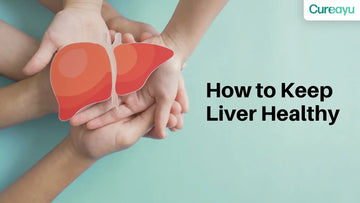The liver is one of the most vital organs in the human body, responsible for a multitude of essential functions that keep us healthy. It plays a key role in detoxifying harmful substances, producing bile for digestion, storing vitamins and minerals, and regulating metabolism. Given its significance, maintaining liver health is crucial for overall well-being. However, with the modern lifestyle that often includes poor dietary habits, alcohol consumption, and exposure to various toxins, our liver can become overburdened and susceptible to damage. This blog explores why it is necessary to maintain liver health, offers practical tips to improve liver health, and provides healthy liver tips to ensure your liver functions optimally.
Also Read: Fatty Liver Symptoms: Recognizing Signs and Seeking Treatment
Why It Is Necessary to Maintain Liver Health
- Detoxification: The liver detoxifies harmful substances from the blood, including drugs, alcohol, and environmental toxins. Keeping the liver healthy ensures it can efficiently filter and eliminate these toxins, preventing their accumulation and potential harm to the body.
- Bile Production: The liver produces bile, a digestive fluid essential for breaking down fats and aiding in the absorption of fat-soluble vitamins (A, D, E, K). Proper liver function ensures adequate bile production, promoting effective digestion and nutrient absorption.
- Metabolism Regulation: The liver is central to regulating metabolism, including the conversion of nutrients from the food we eat into energy. A healthy liver helps maintain balanced energy levels and supports overall metabolic health.
- Nutrient Storage: The liver stores essential vitamins and minerals, such as iron, vitamin B12, and vitamin A, and releases them when the body needs them. Maintaining liver health ensures these nutrients are readily available to support various bodily functions.
- Blood Clotting: The liver produces proteins essential for blood clotting. A healthy liver ensures that these proteins are produced in adequate amounts, preventing excessive bleeding and promoting proper wound healing.
- Immune System Support: The liver contains immune cells that help fight infections. A healthy liver supports a strong immune system, enhancing the body's ability to combat pathogens and stay healthy.
- Hormone Regulation: The liver helps regulate hormone levels, including those involved in metabolism, growth, and stress response. Proper liver function ensures hormonal balance, contributing to overall health and well-being.
Also Read: Top 15 Heart Healthy Foods
How To Improve Liver Health
- Eat a Balanced Diet: Incorporate plenty of fruits, vegetables, whole grains, lean proteins, and healthy fats into your diet. These foods provide essential nutrients and antioxidants that support liver function and overall health.
- Limit Alcohol Consumption: Excessive alcohol intake can damage liver cells and lead to liver diseases such as cirrhosis and fatty liver disease. Limiting alcohol consumption or abstaining altogether can significantly improve liver health.
- Stay Hydrated: Drinking plenty of water helps the liver function optimally by flushing out toxins and aiding in the digestion and absorption of nutrients.
- Exercise Regularly: Regular physical activity helps maintain a healthy weight, reduces liver fat, and improves overall liver function. Aim for at least 150 minutes of moderate-intensity exercise per week.
- Avoid Toxins: Reduce exposure to environmental toxins, such as chemicals, pesticides, and pollutants, which can harm the liver. Use protective equipment and follow safety guidelines when handling hazardous substances.
- Maintain a Healthy Weight: Being overweight or obese can lead to fatty liver disease. Adopting a healthy diet and regular exercise routine can help achieve and maintain a healthy weight, reducing the risk of liver disease.
- Avoid Overuse of Medications: Overuse or misuse of medications, including over-the-counter drugs, can damage the liver. Follow the recommended dosages and consult with a healthcare provider before taking new medications or supplements.
- Get Vaccinated: Vaccinations for hepatitis A and B can prevent these viral infections, which can cause severe liver damage. Ensure you are up-to-date with these vaccinations to protect your liver health.
- Practice Safe Sex: Hepatitis B and C can be transmitted through sexual contact. Practicing safe sex by using condoms can reduce the risk of contracting these infections and protect liver health.
- Regular Check-ups: Regular medical check-ups can help detect liver issues early. Routine blood tests and liver function tests can monitor liver health and detect any abnormalities early on.
Also Read: Symptoms of High Cholesterol
Healthy Liver Tips
- Eat Liver-Friendly Foods: Foods such as garlic, turmeric, beets, leafy greens, and fatty fish are known for their liver-supporting properties. Incorporate these into your diet to promote liver health.
- Avoid Sugary Foods: High sugar intake can lead to fat accumulation in the liver, increasing the risk of fatty liver disease. Limit consumption of sugary foods and beverages to protect your liver.
- Limit Processed Foods: Processed foods often contain unhealthy fats, sugars, and additives that can burden the liver. Opt for fresh, whole foods instead.
- Reduce Salt Intake: Excessive salt intake can lead to liver damage and other health issues. Use herbs and spices to flavor food instead of salt.
- Include Fiber-Rich Foods: Fiber aids in digestion and helps the liver function efficiently. Foods high in fiber include fruits, vegetables, whole grains, and legumes.
- Stay Away from Illicit Drugs: Illicit drugs can severely damage the liver. Avoid using these substances to maintain liver health.
- Monitor and Manage Health Conditions: Conditions such as diabetes and high cholesterol can affect liver health. Regularly monitor and manage these conditions with the help of a healthcare provider.
Conclusion
Maintaining liver health is essential for overall well-being and longevity. The liver performs numerous critical functions that are vital to our health, and neglecting its care can lead to severe consequences. By understanding the importance of liver health and implementing the practical tips and lifestyle changes outlined in this blog, you can support your liver's health and ensure it continues to function efficiently. Remember, regular check-ups and a proactive approach to health can make a significant difference in preventing liver-related issues and promoting a healthier, more vibrant life.








